|
Brother Jonathan Edwards is an evangelist and a licensed counselor who takes the time to share with us real world applications of God's mandate to defend the helpless. We highly recommend this presentation and hope you will consider sharing it with others.
0 Comments
Sexual abuse is a sin that most would rather pretend does not exist. It's easier to go through life not having to peer into the depraved abyss that is sexual abuse and witness all the trauma and havoc the devil has caused. By rejecting God's law in the garden, man unleashed unmitigated evil that he will forever have to deal with whether he wants to or not. There are two ways to cope with the reality of evil: You can bury your head in the sand and pray that it never reaches your door, or you can learn to be "wise as serpents and harmless as doves." (Matthew 10:16) The first approach leaves you vulnerable and helpless; the second will make you uncomfortable and yet better prepared for when (not if) you are confronted by Satan. There is a naive attitude that thinks sexual abuse only happens "out there" in non-Christian homes or in dangerous places rather than "in here" within the safety of our homes and churches, but that attitude does not align with reality. Truth is, research tells us that 1 in 3 girls will experience sexual abuse before they turn 18, as will 1 in every 6 boys (Ingraham et al., 2017). Those numbers are staggering yet may not even represent the actual reality as most experts agree that there is underreporting with boys. The point of this post is not to offer grand sweeping solutions to the problems of evil and suffering; the purpose is to provide a raw look at reality from the eyes of a person who has been sexually abused. WARNING: In the following video you will hear the uncensored testimony of Kyle Stephens. If you are a sexual abuse victim the content will likely be triggering. Ms. Stephens recounts in detail the sexual abuse she endured as a child at the hands of Larry Nassar (the chief medical doctor for the USA Women's Gymnastics team and doctor at Michigan State University) and how that abuse changed her life. The testimony is raw, disturbing, and powerful. There are three points viewers need to keep in mind: First, this is what sexual abuse looks like and how if affects people. Ms Stephen's testimony is disturbing and needfully so. Second, the effects of secondary trauma (as illustrated in Kyle's testimony) are nearly as bad as primary trauma (and some victims would argue even worse). Sexual abuse is therefore more like a process than a single event. Third, the effort it takes for victims to relive their pain in the pursuit of justice on their behalf or that of others is nothing short of heroic. The next video contains the testimony of the final witness in the same trial, Rachael Denhollander. Ms. Denhollander does a tremendous job laying out the parameters of justice and forgiveness. She was one of the key witnesses who lead the charge and made the whole trial possible. Without her efforts it is unclear whether or not Mr. Nassar would have been brought to justice. There is a reason Ms. Denhollander was voted one of the Top 100 most influential people in the world in 2018. If you want to read more about the life and trials of this remarkable woman, pick up a copy of her book, What Is A Girl Worth? Following Ms. Denhollander's closing statement and before he was sentenced by the judge, Mr. Nassar read his own statement. Here is his apology: As sorry and remorseful as Mr. Nassar might appear, the judge exposed his feigned remorse for what it was before issuing his sentence. What the judge did that day was truly remarkable and provides incredible insights into the depraved levels of deception employed by predators and the heinous nature of their character. Let the judge's words stand as a warning of caution if you ever have to confront or choose to defend a known predator. The justice that was witnessed in the Nassar trials is unfortunately not how things typically end. Unfortunately only 1 in 10 cases of abuse get reported and out of those cases only 3% reach a conviction. The fact is, we live in a broken system. I say that to say, just because a person is not convicted does not mean that they are not a sexual predator, nor does it mean there should not be any boundaries placed around them or consequences for their actions. Should sexual predators be forgiven by their victims? If they repent, yes. God is willing to forgive all sin and to cleanse from unrighteousness (1 John 1:8-9) if we will but confess and repent, and He expects us to do the same (Luke 17:3-4). Does that mean the past crimes of sexual predators should be forgotten and all consequences removed? Never. Amos 5:24 Take away from me the noise of your songs; to the melody of your harps I will not listen. But let justice roll down like waters, and righteousness like an ever-flowing stream. Ingraham, D., Davis, A. P. O. E. R., & Davis, R. (2017). Tear down this wall of silence: Dealing with Sexual Abuse in Our Churches (an Introduction for Those Who Will Hear).
In Judith Herman’s book Trauma and Recovery, the story is told of a navy sailor who’s ship sank at sea leaving him and his companions clinging to the side of a raft in icy waters for twelve hours awaiting rescue. Several of the men lost consciousness while they waited and drowned. When the main sailor of the story was interviewed by a therapist sometime after the incident, it appeared that one of the most traumatic aspects of the whole ordeal was not the time spent in the water, but the way some of the sailors were treated when rescuers finally arrived. “The patient became rather excited and began to swear profusely; his anger was aroused clearly by incidents connected with his rescue. They had been in the water for a period of about twelve hours when a torpedo-boat destroyer picked them up. Of course the officers in the lifeboats were taken off first. The eight or nine men clinging to the raft the patient was on had to wait in the water for six or seven hours longer until help came.” The experience of the navy officer’s rescue is parallel in almost every aspect to the experience of survivors of sexual abuse when they are neglected by their communities of faith. Whenever a survivor experiences the horrific trauma of sexual abuse, and is then either not heard, believed, or defended by those whom they trust, the result is identical to that of the sailor: post-traumatic stress, pathological grief, disrupted relationships, and chronic depression. This is why many survivors claim that the process of seeking help within their community is far more traumatic than the initial events of violence that they had to endure. I share the excerpt from Herman’s book to raise awareness about the silent suffering that survivors of sexual abuse have to endure and to challenge people to rethink how they interact with survivors. Though you may not understand fully what the survivor is going through, do not downplay the nature of their experience, pretend as if it did not happen, question their motives for sharing it, or attack their person for speaking up and seeking either help or justice. Re-victimization is an awful reality that survivors have to endure as they seek healing for themselves and protection for others. The two greatest challenges faced by survivors are the ignorance of the masses on the topic of sexual abuse and the unwillingness of people to hear their story and get involved. Ignorance leads people to say and post things on social media about victims and advocates (or in defense of predators) that are both appalling and devastating. The ignorance of such posts and individuals perpetuates wickedness, promotes deception, and compounds oppression – not to mention hinders people from doing good when goodness is greatly needed. In short, ignorance often causes otherwise good people to share in the sins of others (Luke 23:34; 1 Timothy 5:22). Before you decide to attack the credibility, truthfulness, and well-being of survivors, educate yourself with knowledge of what is involved in the trauma of sexual abuse. If you don’t want to get educated, keep your opinions of ignorance to yourself so that you don't end up mortally wounding someone in your ignorance. Here are five books people need to read before engaging in an assault of survivors or spewing “knowledge” before the masses: 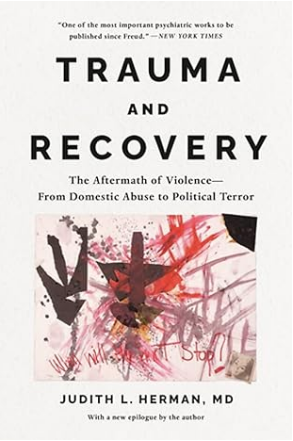 1.Trauma and Recovery by Judith Herman Herman explains in vivid colors what survivors of severe trauma (including war and sexual abuse) suffer psychologically, physically, emotionally, and relationally. One of the greatest challenges in getting people to take sexual abuse seriously is getting people to even consider what survivors have to go through. As Herman poetically states in her book. “It is very tempting to take the side of the perpetrator. All the perpetrator asks is that the bystander do nothing. He appeals to the universal desire to see, hear, and speak no evil. The victim, on the contrary, asks the bystander to share the burden of pain. The victim demands action, engagement, and remembering.” The reality of the survivor is messy, difficult, unpleasant, and uncomfortable. Helping survivors forces people to see things they don’t want to see, learn things they don’t want to learn (there’s that ignorance again), and ultimately get involved in situations that would be easier to avoid. Like the priest and the Levite in the Lord’s story of the Good Samaritan, it is easier to walk on by without getting involved; easier at least until Judgment Day. Survivors of sexual abuse and severe trauma need the love and support of those who surround them – not the casual dismissal and hurtful attacks they often receive. Heman’s book will help you learn to empathize with survivors and understand better what it’s like to walk a short distance in their shoes. 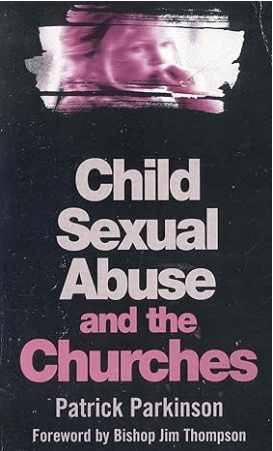 2.Child Sexual Abuse and the Churches by Patrick Parkinson Parkinson does a phenomenal job exposing the dangers that lurk within churches and the reality of the epidemic of evil that is being covered up. Written from both a biblical and psychological background, Parkinson forcefully advocates on behalf of survivors within churches and equips church leaders to recognize how predators work to destroy the vulnerable within the flock. Not only does Parkinson seek to defend, he also seeks to expose how churches fail to defend the innocent, attempt to cover up wickedness, and abandon God’s demand for justice. 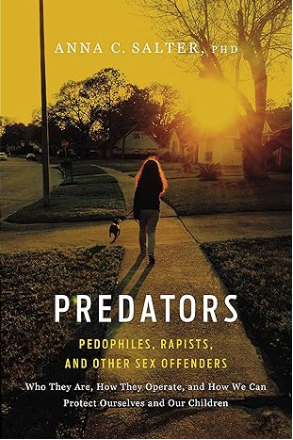 3. Predators by Anna Salter Salter is widely recognized as one of the top researchers and clinicians in her field, and uses her vast experiences and knowledge to peel back the layers of deceptions and tactics used by predators to harm children. Predators is a disturbing book and yet a MUST READ for all parents and church leaders as it strips away ignorance and leaves you better equipped to protect your children and loved ones as a result. 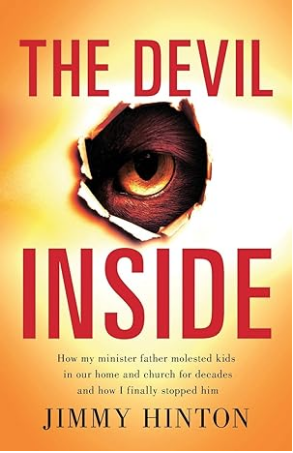 4.The Devil Inside by Jimmy Hinton The Devil Inside documents the life of author Jimmy Hinton as he grows up in Pennsylvania attending a church of Christ where his father is the preacher. When Hinton one day takes over the position of preacher at the church where his father had taught for 26 years, he was horrified to discover that his father was a sexual predator who had abused his sister and dozens of other children in the congregation and the community. Hinton recounts the grueling process of turning his father into the authorities, dealing with the fallout in his family, church, and community, and then advocates on behalf of sexual abuse victims within the church. One of the most helpful parts of this book is the realization that people we least expect can be capable of great atrocities and therefore leaders must be diligent to put a plan of action in place to deal with abuse whenever it unfortunately occurs. 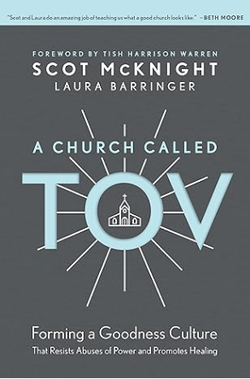 5. A Church Called TOV by Scott McKnight TOV is the Hebrew word for “Good” and McKnight’s goal is to explain what makes a TOV church culture (Good and Healing) as opposed to a bad one. The value of the book is found in the first four chapters as McKnight provides a playbook for how to NOT handle cases of sexual abuse within the church. McKnight documents how Willow Creek (a mega church in Chicago) mishandled allegations of sexual abuse against their celebrity pastor Bill Hybles, attacked the survivors of abuse, and ultimately had the situation blow up in their faces as the survivors too the matter to the media. The actions of Willow Creek are quite similar to those of the Catholic Church in attempting to cover up instances of sexual abuse, as well as the actions of elders and church leaders with whom I have had to interact with in recent months. Though it is depressing to see the lengths churches and leaders will go in an attempt to hide the truth, A Church Called TOV reminds readers that truth will triumph, evil will fail, and God will be glorified. Though I do not agree with many of the views found in other chapters of the book, the first four are well worth the read.
In Closing:
If there is one thing I want leave you with it’s this: The Lord came into this world to take on flesh and live in the midst of the mess that we have made in order to “seek and save that which was lost” (Luke 19:10). May we as His people share in His mission by helping the hurting and protecting the vulnerable. |
Categories
All
Nathan Battey
is an evangelist of the Church of Christ in Arlington, Texas. Archives
January 2024
|

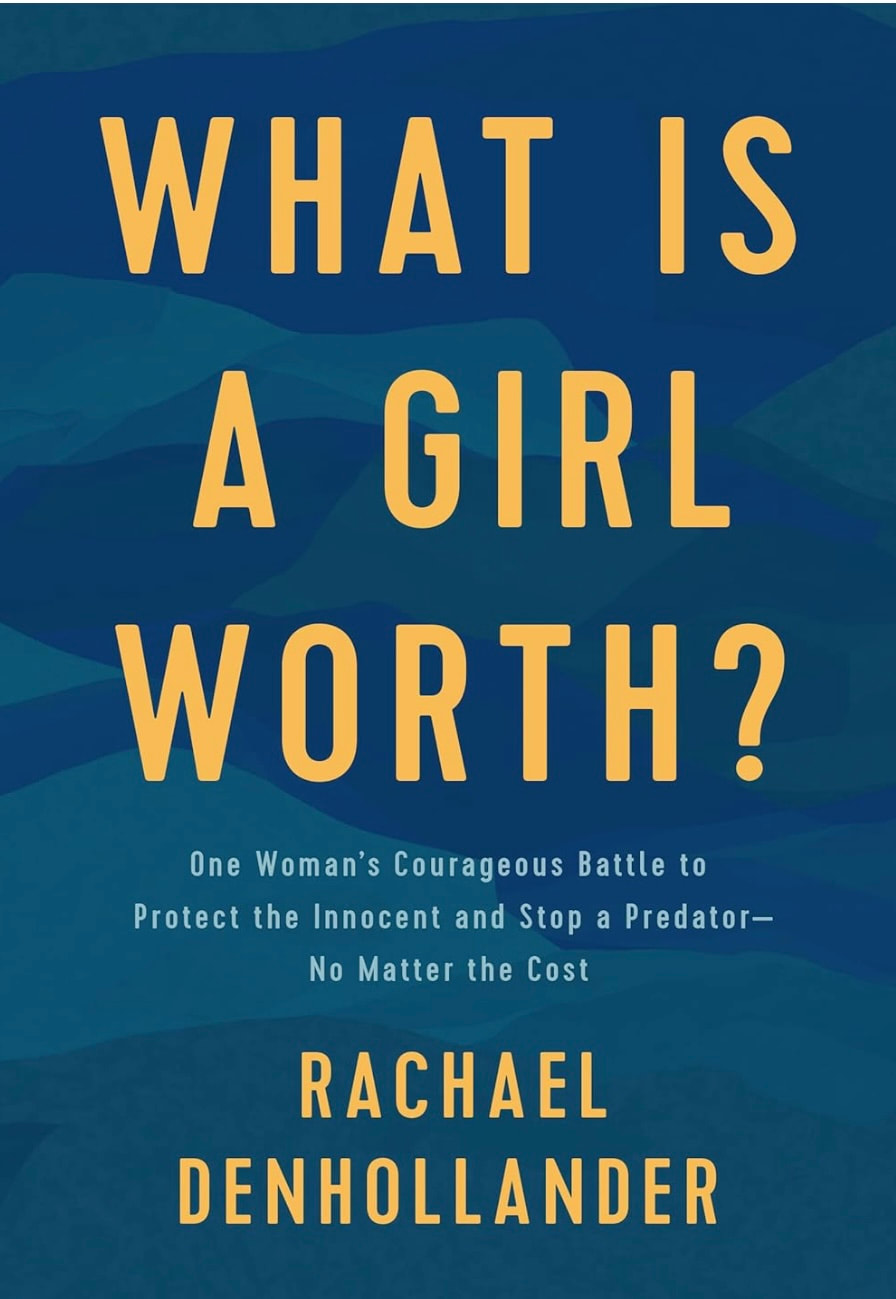
 RSS Feed
RSS Feed
